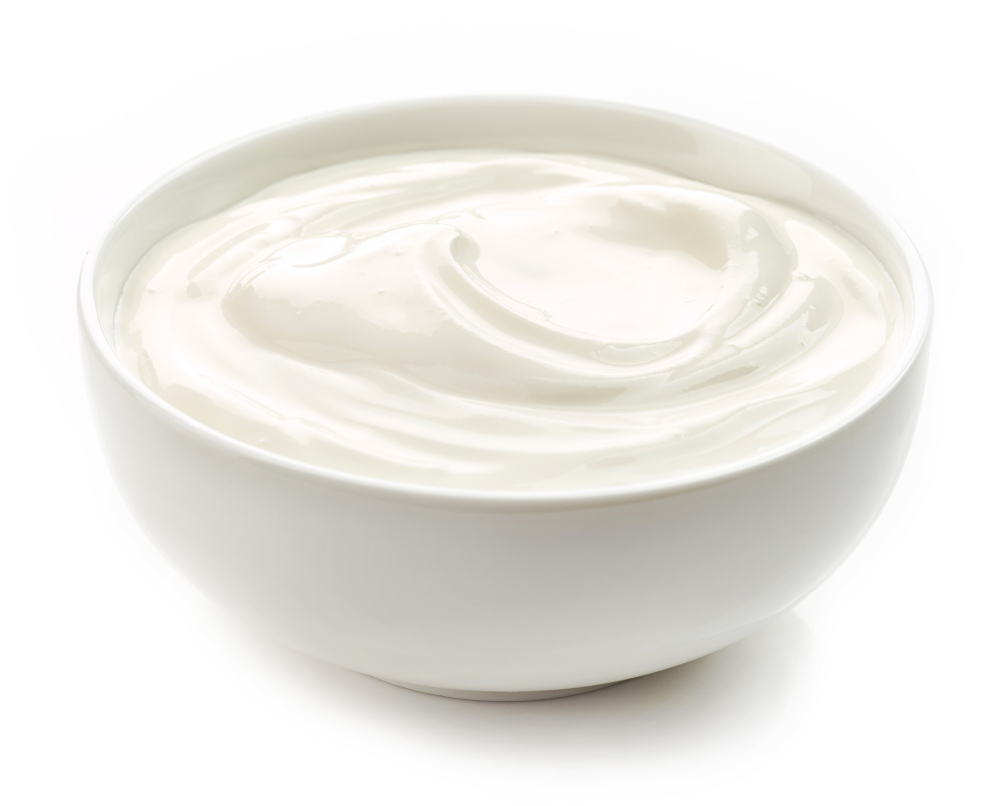Register now & enjoy many advantages
- Rating
- Cookbook
- Comment
- Shopping list
yoghurt
Eggs, milk and milk products
Yoghurt is made from milk. By adding lactic acid bacteria, you get this white, creamy delight. The natural variety has a slightly sour taste and is available with various levels of fat. Yoghurt contains protein, calcium and Vitamin B in good measure, which have a positive effect on our bones, teeth and nerves. The lactic acid bacteria in it boost our immune system and have a positive effect on our intestinal flora. Yoghurt is often used as the base for sweet and savoury dips, for baking and for desserts.

Nutrition Facts
Serving Size 100 g
| Amount Per Serving |
| Kilocalories 69.00 |
| Fat 3.80 g |
| Lactose 3.20 g |
| Carbohydrate 4.40 g |
| Protein 3.90 g |
| Water 86.50 g |
